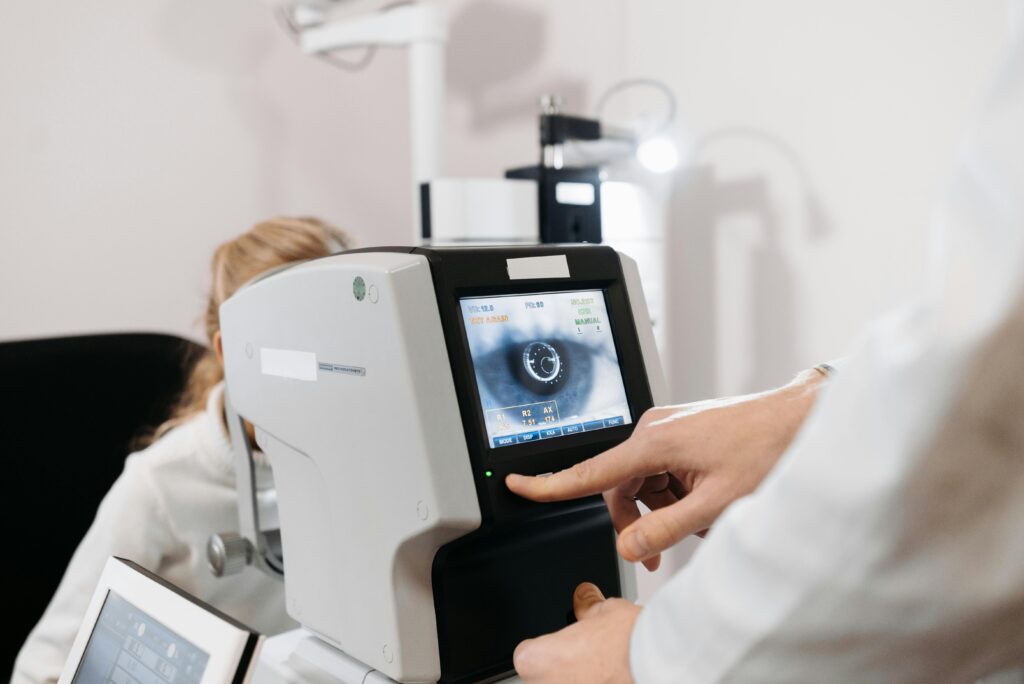
What is meant by Ophthalmology medicine?
This is a discipline of medicine concerned with the eye. The doctors practis20092010FJ01!
ing in this area, known as Ophthalmologists, are highly specialised. They treat injuries, disorders and diseases of the eye.
What conditions does an Ophthalmologist treat?
The conditions and diseases these specialist doctors treat are many and varied. They include amongst others:
- Cataracts
- Fractures of the orbital cavity
- Glaucoma
- Retinal detachment
- Tumours of the eye
When may an Ophthalmic injury compensation claim arise?
Most of the time Ophthalmologists provide treatment to their patients to a high standard but from time-to-time things do go wrong that could have been avoided with correct and/or prompt treatment. When issues do arise, the consequences on a person’s life can be devastating and lead to a loss of sight.
If it can be shown that the treatment provided fell below a reasonable standard and was negligent, an Ophthalmic injury compensation claim can be made. To succeed in relation to such a claim it is necessary for an independent Consultant Ophthalmologist to produce a report confirming that the treatment provided would not be supported by a responsible body of doctors practising in that area of medicine. It is also necessary to then establish that different and/or more prompt treatment would have made a difference and prevented the injury arising or worsening.
What types of treatment might give rise to an Ophthalmic Injury Compensation Claim?
The types of eye disease, conditions and treatment that may give rise to a claim are wide ranging and include:
- Cataract or corneal surgery
- Laser eye treatment
- Retinal detachment caused by trauma
- Diabetic retinopathy
- A delay in diagnosing and treating a serious condition such as glaucoma
- Mismanagement of a foreign body in the eye
- Missed or delayed diagnosis.
What damages might I be able to claim?
In addition to obtaining expert evidence to determine if the treating doctor has been negligent, it will also be necessary to obtain evidence from an independent expert advising on what injury has been caused because of any negligence which can be proved.
A claim will be made for both general and special damages.
General damages are damages for the pain, suffering and loss of amenity a person has suffered. In other words, these damages are intended to compensate for the physical and psychological injuries sustained.
In addition, it will be necessary to claim any financial losses a person has suffered due to the injury. These are known as special damages and will include those losses incurred to the date of settlement as well as any future losses that will be incurred if these are supported by the medical evidence. A claim for special damages may include:
- Travel expenses
- Medication and prescription charges
- Past and future loss of earnings
- Past and future care and assistance
- Past and future aids and equipment
- Past and future private treatment.
Is there a time limit for bringing an Ophthalmic Injury claim?
A claim must be brought within 3 years of the date of the incident causing the ophthalmic injury or the date a person is aware they may have suffered an injury due to the other party’s negligence. Children will require a parent or relative to conduct the proceedings on their behalf until they are 18. A person under 18 at the time of an incident has until their 21st birthday to bring a claim.
If a claim is not commenced within the required time limit, the claim will be time barred. This means it will not be possible to pursue an action even if the claim has good prospects.
What should I do if I feel something has gone wrong and I have suffered an injury?
You should contact a Solicitor who specialises in medical negligence cases as soon as possible. It is also advisable to put in a complaint directly to the Hospital or Surgeon. Where the error involves NHS treatment, there is a specialist complaints process known as the NHS Complaints Procedure.
An experienced Solicitor will be able to help you with lodging a complaint whether it is NHS or private treatment that is involved.
How can Timms help?
Our team has many years of experience in pursuing ophthalmic injury compensation claims. If you would like to discuss any concerns about your treatment on a no obligation basis, you should not hesitate to contact our team on 01283 214231 or via email at legal@timms-law.com.




